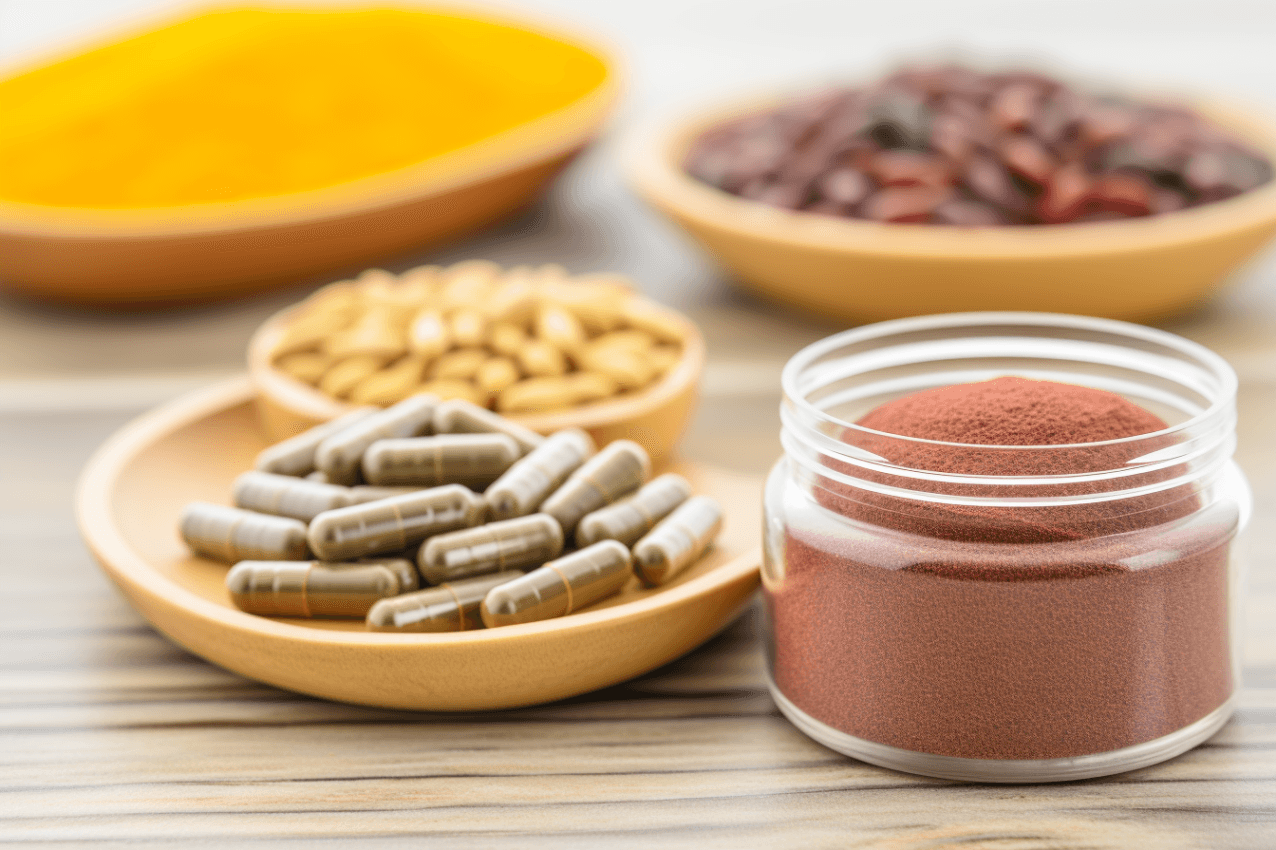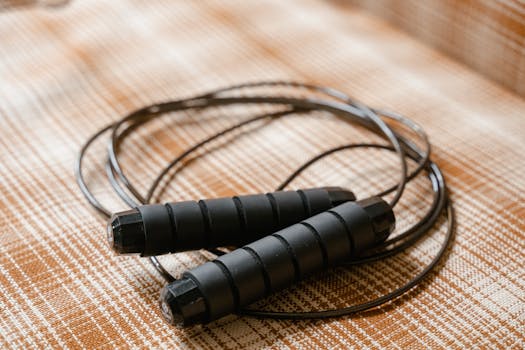Best Supplements for Menopause Brain Fog: Regain Clarity
Nov 21, 2024
As women navigate the transition of menopause, one of the most frustrating and debilitating symptoms they often face is brain fog. This cognitive impairment can manifest as forgetfulness, difficulty concentrating, and a general feeling of mental cloudiness, making it challenging to perform daily tasks and maintain productivity. However, with the right supplements and lifestyle changes, you can combat brain fog and regain your mental clarity.
Understanding Brain Fog During Menopause
Brain fog is a common experience during menopause, primarily due to the fluctuating hormone levels that occur during this transitional phase. Estrogen, a hormone that plays a crucial role in cognitive function, decreases significantly during menopause. This hormonal imbalance can lead to various cognitive issues, including memory lapses, difficulty focusing, and a general sense of mental fatigue.
Symptoms of Menopause Brain Fog
The symptoms of brain fog during menopause can vary from woman to woman, but some common experiences include:
Forgetfulness and memory lapses
Difficulty concentrating and staying focused
Mental cloudiness or "brain fog"
Trouble finding the right words or expressing thoughts clearly
Increased irritability and mood swings
While these symptoms can be frustrating, it's important to remember that they are a natural part of the menopausal transition and can be managed with the right strategies, including the use of supplements and lifestyle changes.
Top Science-Backed Supplements for Menopause Brain Fog
Incorporating certain supplements into your daily routine can help alleviate brain fog and support cognitive function during menopause. Here are some of the top science-backed supplements to consider:
Omega-3 Fatty Acids
Omega-3 fatty acids, found in fish oil and plant sources like flaxseeds and walnuts, are essential for brain health. They have been shown to improve cognitive function, memory, and focus, making them an excellent choice for combating brain fog during menopause. Supplements like fish oil or algae-based omega-3s can provide a concentrated dose of these beneficial fatty acids.
Curcumin (Turmeric)
Curcumin is the active compound found in turmeric root, and it has potent anti-inflammatory properties. While research on curcumin and menopause brain fog is limited, a placebo-controlled trial involving women with premenstrual symptoms showed promising results. Participants who took a daily 500 mg curcumin supplement experienced significant improvements in memory, focus, emotional control, and overall cognitive performance.
Ginkgo Biloba
Ginkgo biloba is an ancient herb that has been used for centuries to improve cognitive function and memory. A small study involving postmenopausal women found that a daily 120 mg Ginkgo biloba supplement led to modest but clear improvements in visual memory, attention, and cognitive flexibility after just one week, compared to a placebo.
Soy Isoflavones
Soy isoflavones are a type of phytoestrogen found in soybeans. A review of multiple studies found that postmenopausal women who took daily soy isoflavone supplements for as little as a week saw improvements in their verbal and visual memory, as well as planning and organizational skills.
Resveratrol
Resveratrol is a phytoestrogen found in grapes and wine. Studies have shown that taking a daily 150–200 milligram (mg) resveratrol supplement can improve working memory, planning, and organization in postmenopausal women after 14 weeks. Resveratrol may help by allowing oxygen to permeate brain tissue more efficiently.
Vitamin C and Vitamin D
While there is limited evidence to support the use of B vitamins for menopause brain fog, vitamin C and vitamin D supplements may be beneficial if you have a deficiency. Vitamin C performs important functions in the brain and may provide protection from age-related cognitive decline. Vitamin D deficiency has been linked to poorer cognitive performance and an increased risk of cognitive decline.

Lifestyle Strategies to Combat Brain Fog
While supplements can be incredibly helpful in managing brain fog during menopause, it's important to combine them with a healthy lifestyle. Here are some additional strategies to consider:
Eat a Brain-Healthy Diet
Improving your diet can have a significant impact on your brain health, focus, and energy levels, as well as your overall well-being. Consider following the Mediterranean or MIND (Mediterranean-DASH Intervention for Neurodegenerative Delay) diets, which are rich in whole foods, fruits, vegetables, whole grains, and healthy fats. These dietary patterns have been shown to protect brain health and reduce the risk of cognitive decline.
Additionally, limit your intake of ultra-processed foods, refined carbohydrates, and sugary foods, as they can cause blood sugar spikes and crashes, leading to low energy and difficulty concentrating.
Exercise Regularly
Regular exercise has been shown to improve cognitive function and reduce the risk of age-related cognitive decline. Aim for a combination of aerobic exercise, strength training, and mind-body practices like yoga or tai chi to support brain health and combat brain fog.
Get Enough Sleep
Sleep plays a crucial role in cognitive function and memory consolidation. During menopause, sleep disturbances can exacerbate brain fog. Aim for 7-9 hours of quality sleep each night and practice good sleep hygiene to improve sleep quality.
Manage Stress
Chronic stress can contribute to brain fog and cognitive impairment. Incorporate stress-reducing activities like meditation, deep breathing exercises, or yoga into your daily routine to help manage stress levels and promote mental clarity.
Stay Mentally Engaged
Engaging in mentally stimulating activities like reading, puzzles, or learning new skills can help keep your brain active and sharp, potentially reducing the risk of cognitive decline during menopause.
When Does Menopause Brain Fog End?
If you're experiencing menopause brain fog and are worried that you'll never see the end of these debilitating symptoms, there may be some comfort in knowing that it doesn't last forever. A large-scale women's health study found that difficulties with memory, learning, and mental agility tended to occur during perimenopause, and participants' performances on cognitive tests returned to their original levels after menopause.

While perimenopause can last several years, finding strategies to help manage your symptoms in the meantime is crucial. Incorporating supplements, improving your nutrition, and adopting a healthier lifestyle can all contribute to alleviating brain fog during this transitional phase.
Conclusion
Brain fog during menopause can be a frustrating and debilitating experience, but with the right supplements and lifestyle strategies, you can regain your mental clarity and focus. By incorporating supplements like omega-3 fatty acids, curcumin, ginkgo biloba, soy isoflavones, resveratrol, and vitamins C and D (if deficient), you can support cognitive function and combat brain fog.
At Getlila, we understand the unique challenges women face during menopause, and our AI-powered personal training solutions are designed to provide personalized support and guidance. Our weight loss programs take into account the hormonal changes and cognitive impacts of menopause, offering tailored exercise and nutrition plans to help you achieve your goals while managing symptoms like brain fog.
Don't let brain fog hold you back. Take control of your cognitive health and embrace the power of supplements and lifestyle changes. Visit Getlila today to learn more about our personalized approach to menopause management and start your journey towards a clearer, sharper mind.
Ready to Simplify Weight Loss?
Download the Lila app or visit getlila.com to start your journey. Experience the power of an AI-driven approach designed to adapt to your changing body and unique needs. Embrace holistic weight loss with Lila—because you deserve to feel strong, confident, and truly yourself again.
Disclaimer: This article is for informational purposes only and does not substitute professional medical advice. Consult a healthcare provider for personalized recommendations.
You should not have to do it all on your own











